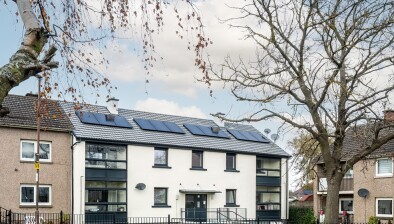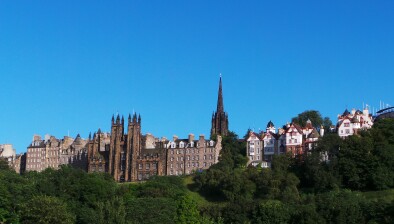Edinburgh council to consider ‘mansion tax’ for high-value properties

The City of Edinburgh Council has unveiled plans to introduce a higher threshold of council tax for the city’s most valuable properties in an effort to balance the books at the local authority.
Dubbed the ‘mansion tax’, the proposal is to ‘decouple’ the council tax bands for homes above Band D, which would allow the council to maintain the council tax freeze for residents living in less valuable properties.
The plan, which will go before councillors later this week, come as the council tries to find £85 million worth of savings to balance next year’s budget.
The Scottish Government’s flagship policy of a council tax freeze means rates haven’t increased since 2007, and they remain fixed for 2016-17. But just last week Moray Council said it was considering raising council tax by as much as 18 per cent in a bid to meet an £11m deficit over the next financial year.
Edinburgh councillors said they were “optimistic” of securing the power from ministers to make the system more “flexible and progressive” from next year, allowing tax rises to be focused on those whose properties are more expensive.
Local SNP and Labour leaders both described the existing system of local government finance as “broken” and called on ministers to implement urgent reforms.
Proposals for greater flexibility came as council leaders unveiled their updated 2016-17 budget motion, which contained a number of U-turns on previous draft plans.
These include:
Councillor Sandy Howat, SNP leader and member for the Meadows and Morningside, said he and his colleagues expected to receive powers which would allow them to make the current tax system more flexible.
He said: “It will take too long to look at how we redo the whole package of local government taxation.
“What we need is an interim step where we can do something with the present tax system to give it more flexibility – that is, decouple the bands, or something as simple as that, which might give us an opportunity not just to have a uniform blanket rise but to tweak it somewhat.
“That could be enacted quite quickly. I am optimistic that we will have a quicker reform rather than a slow revolution.”
He added: “We’re all social democrats. We’d all happily say that a progressive tax, based on the ability to pay, should be the basic idea behind it.”
Asked if this would mean greater taxes for higher-band homes, he said: “Yes – there are lots of high-end properties in my ward as well and I’m quite happy to say that. Council tax, which is not a fair tax, is one part of the taxation issue but the other part of it is democracy and representation.
“There’s an old adage from North America that there’s no taxation without representation. What we have here is representation with very limited taxation. I am pleased that the council tax will be coming to an end. I think everybody, collectively, wants that.”
City leader Andrew Burns added: “It frankly pains me that this year’s local government settlement is going to damage the services I and my colleagues on the city council are responsible for delivering.
“I am now certain, absolutely beyond doubt, that the system of local government finance in Scotland is broken. But I don’t want this issue to settle on council tax. It’s much bigger than that.
“We need to offer local councils options. If you have a cursory glance at our North American and European counterparts, they have control of 40 per cent of their tax base. And in a couple of months time, the parliament which is sitting half-a-mile down the road will also be controlling about 40 per cent of its income.
“And yet we in local government are still going to be sitting on around 18 per cent of our income, with 82 per cent coming in a block grant. It’s not sustainable.”








